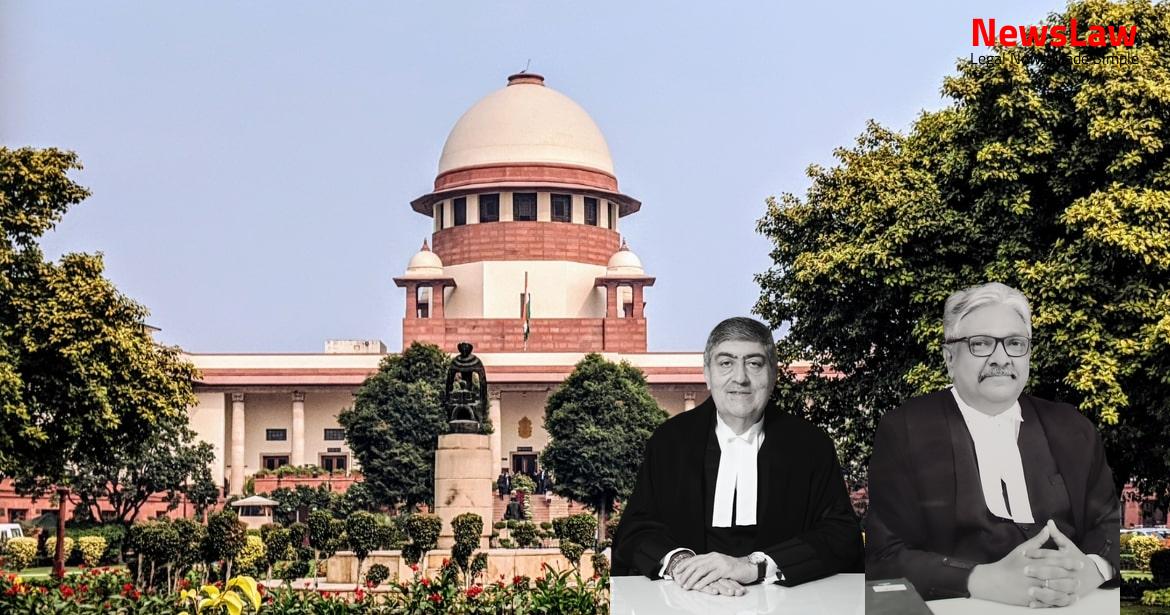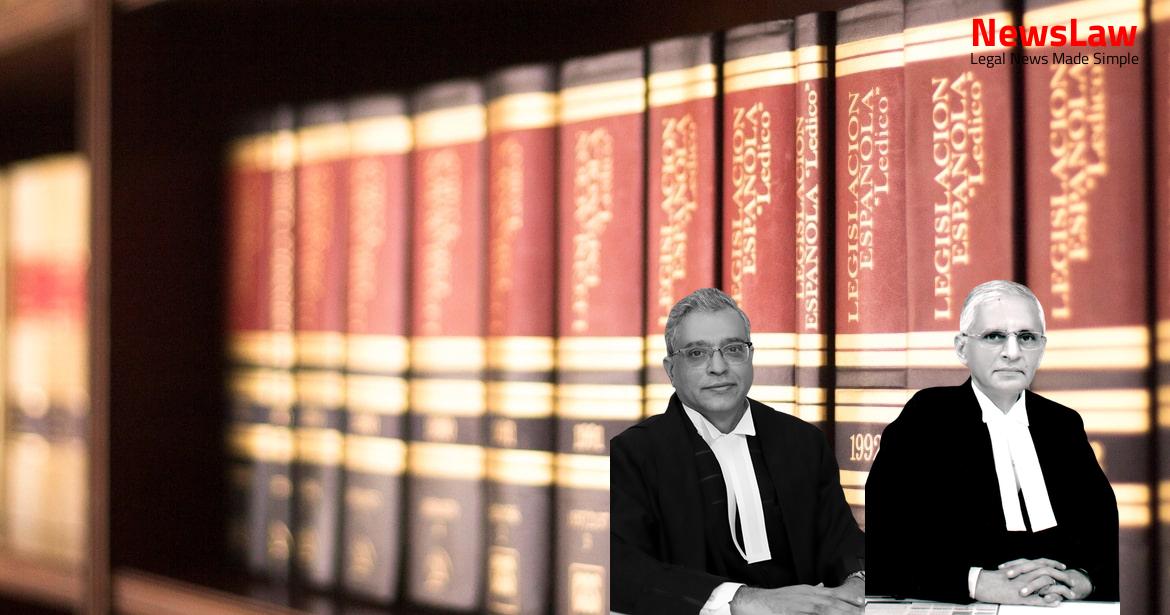Explore the intricate legal analysis conducted by the court regarding the interplay between the Criminal Procedure Code (CrPC) and the Drugs and Cosmetics Act. The judgment provides clarity on the procedural requirements for arrests and FIR registrations in cases of cognizable offences under the Act. Stay tuned to unravel the complexities of legal interpretations and their impact on law enforcement practices.
Facts
- The appellant, Union of India through the Secretary, Ministry of Health and Family Welfare, was not made a party to the writ petition.
- A complaint was made by Naushad Khan on 22.2.2018.
- Question raised on the interplay between CrPC and the Drugs and Cosmetics Act, 1940.
- Enquiry conducted at Sharda Narayan Clinic and Pharmacy by the Drug Inspector and others.
- FIR lodged on 22.6.2018 under Section 18(a)(i) and Section 27 of the Act against respondent No.1.
- Allegations of storing medicines without a proper license.
- The High Court quashed the FIR based on the reasoning that Section 32 of the Act must be strictly followed for prosecuting offences.
- Only specific individuals outlined in the Act are eligible to make a complaint regarding offences related to Drugs and Cosmetics.
- The Act provides a comprehensive code for the trial of offences under it, with an overriding effect over all other Acts.
- Provisions of the CrPC are not applicable except as provided within the Act itself, and the lodging of an FIR under CrPC Section 154 is not permissible in this case.
Also Read: Analyzing Legal Reasoning in a Poisoning Death Case
Issue
- The impact of finding that arrest can be effected by a police officer in respect of a cognizable offence under Chapter IV of the Act on the need to register an FIR under Section 154 is being examined.
- The question pertains to the procedure and requirements for arrest in cases of cognizable offences as outlined in Chapter IV of the Act.
- This issue delves into the interplay between the power of police officers to make arrests without a warrant and the obligation to register FIRs under Section 154 of the Act.
- The judgment is likely to provide clarity on the procedural aspects of initiating action in cases of cognizable offences, specifically regarding the necessity of FIR registration before or after effecting an arrest.
Also Read: Legal Analysis of Lease Deed Commencement Date
Arguments
- Section 32 was amended alongside the insertion of Section 36AC in the Act.
- FIR under Section 154 of the CrPC is not contemplated for offences falling under Section 36AC.
- The Additional Solicitor General argued that FIR can be lodged under the CrPC for cognizable offences under the Act.
- The Amicus Curiae suggested that registering an FIR under Section 154 of the CrPC for offences under the Act is pointless.
- The Act aims to curb activities threatening public health and safety.
- There is apprehension that granting power to arrest under special enactments might lead to arrests under the CrPC without proper cause.
- The High Court’s error in ignoring the relevance of Section 36AC in the consequences of Section 32 under the Act was noted.
- The Court referred to various judgments to highlight the limitations and procedures for launching prosecutions under the Act.
- Ms. Pinky Anand, Additional Solicitor General, argues that certain offenses under Section 36AC are cognizable, necessitating police powers under CrPC and the duty to register a FIR under Section 154.
Also Read: Analysis of Jurisdiction and Exemption in ESI Act Case
Analysis
- The courts must interpret conflicting provisions in a manner that harmonizes them
- The procedures for filing reports and conducting investigations under the Act are outlined
- The Act does not prohibit the police from investigating certain offenses under the Act
- Specific judgments and interpretations related to the powers of police officers and other department officials under different Acts were referred to
- The role and powers of Inspectors under Section 22 of the Act were discussed
- Various instances and judgments related to the powers of arrest, investigation, and filing of complaints by different officers were examined
- The importance of statutory provisions, conflicting interpretations, and maintaining the balance between individual liberty and societal order were emphasized
- Different High Courts’ decisions and interpretations regarding police powers, arrests without warrants, and cognizable offenses were compared
- Detailed scrutiny of powers of officers under different Acts was conducted to understand the scope and limitations of investigation and arrest powers
- The impact of different laws and sections on arrests, investigations, and filing of complaints was analyzed
- The duty of courts to ensure the consistency of interpretations and application of laws across different acts were underscored
- Police officers do not have the power to arrest in respect of cognizable offences under Chapter IV of the Act.
- The decision regarding the power of arrest will be effective from the date of the judgment.
- The substances should be made over to the Drugs Inspectors for further action if not already done.
- Drugs Inspector is directed to take action on the substances in accordance with the law.
- The use of Article 142 of the Constitution of India is mentioned as the basis for resorting to the power in this regard.
- It is believed that in many cases, police officers may have made arrests based on a misunderstanding of the law related to the power of arrest.
Decision
- Upholding the impugned Judgment and dismissing the Appeal
- Directing Drugs Inspectors to report arrests to both the authorities mentioned in Section 58 of the CrPC and their superior Officers
- Specifying that explanations and actions taken against the Drugs Inspectors must be forwarded to the Court within 8 weeks through the Registrar General
Case Title: UNION OF INDIA Vs. ASHOK KUMAR SHARMA (2020 INSC 517)
Case Number: Crl.A. No.-000200-000200 / 2020



